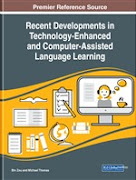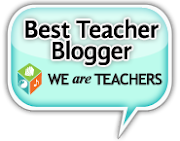Borg (2015), while reviewing Clandinin & Connelly's works from 1986 to 1997, mentioned that they are both leading figures in the study of teacher knowledge, particularly in the "distinct orientation" of "practical knowledge." Though not explicitly addressed in this book, I believe that narrative inquiry is rooted in Clandinin & Connelly's studies on teachers' practical knowledge. This book focuses on narrative inquiry as a research approach, yet what I'm drawn to is its potential as a tool for self-reflective professional development for teachers. In this post, I'm sharing some of my initial thoughts on how this potential can possibly be explored.
 |
| Teacher professional development: Change is a clear sign that learning is taking place. |
Why Narrative?
That's the title of the book's Chapter 1, which addresses the reasons for using narratives in research. Clandinin & Connelly drew examples from the fields of anthropology, psychiatry and organisational science and cited some of the leading figures in those fields, such as John Dewey, Mark Johnson, and Alasdair Macintyre. They also provided examples of how narratives were used by researchers such as Clifford Geertz (anthropology), Mary Catherine Bateson (anthropology), Barbara Czarniawska (organisational research), Robert Coles (psychiatry), and Donald Polkinghorne (human sciences). According to Clandinin & Connelly, narrative is defined as "a way of understanding experience" (p. 20). Narrative is essential in research about human because human experiences are narrative in nature.There are some interesting points highlighted in Chapter 1. Clandinin & Connelly made it clear that different disciplines have different ways of interpreting the relationship between the inquirer / researcher and the participant/s. Despite the many differences, what every field has in common with one another with regard to narrative is this: that change is central to a narrative, and certainty is not a goal (p. 9). Hence, narrative inquiry is not a quest to find a definite answer, but rather an attempt at understanding change. Clandinin & Connelly pointed to an example in psychiatry given by Robert Coles where narrative is not the outcome of change but the origin of it (p. 12).
Why is change so important in narrative? It's because change is what leads to continuity. Narrative inquiry is interested not just in what's happening at the present moment, but also in the past and most importantly, in the future. Clandinin & Connelly asserted that continuity results because people improvise and adapt, i.e. they learn (p. 7). In other words, change is a clear sign that learning is taking place.
Making Sense of Experience
Narrative inquiry is making sense of experience. It's all about personal experiences and individual contexts. I think this strikes a resonance with sociocultural theory, i.e. drawing inspirations from social contexts to mediate learning. Before I discuss the possible applications of narrative inquiry in teacher professional development, let's look at some of the tensions between narrative inquiry and the 'grand narrative' as demonstrated by Clandinin & Connelly in Chapter 2 of the book.The 'grand narrative' refers to Thorndike's "measurement-oriented" idea of "a science of education based on observation and numerical representation of behaviour" (p. 22). Clandinin & Connelly remarked on how this idea has become 'the' way in educational research, i.e. "an unquestioned way of looking at things" (p. 22). When they proposed an alternative way of looking at things through narrative inquiry, Clandinin & Connelly's contentions were met with responses that seemed to devalue the essence of meaning-making through experience. The following described this 'tension' between Clandinin & Connelly and those who subscribe so strongly to the idea of the 'grand narrative':
We thought they were slightly intransigent and unwilling to change, whereas they, with the weight of opinion on their side, probably saw us as esoteric and unwilling to compromise. (p. 29)
What could have been the factors for this opposing views? Clandinin & Connelly listed five main 'tensions' between narrative inquiry and the 'grand narrative', i.e. temporality, people, action, certainty and context. The following is my summary of the whole narrative inquiry versus the 'grand narrative' tug-of-war:
Narrative Inquiry The Grand Narrative
Temporality time-bound timeless
People essential irrelevant
Action interpretive evidential
Certainty tentative causal
Context personal universal
Temporality
According to Clandinin & Connelly, "When we see an event, we think of it not as a thing happening at that moment but as an expression of something happening over time. Any event, or thing, has a past, a present as it appears to us, and an implied future" (p. 29). This is the idea which narrative inquiry is rooted from. The 'grand narrative', on the other hand, characterises events and things "in and of themselves", and appear to have "a timeless sense about them" (p. 30).People
Clandinin & Connelly emphasised that "people, at any point in time, are in a process of personal change" (p. 30). Histories and experiences of people are important in narrative inquiry. The 'grand narrative', on the other hand, seems to be constructed from "essentially people-free notions" (p. 30). Narrative histories and personal experiences are seen as irrelevant or impractical.Action
In narrative inquiry, action is understood as a "narrative sign" (p. 30). Any action should be interpreted as expressions of narrative histories (p. 31). Interpretations of narrative histories give significant meaning to an action. From the 'grand narrative' point of view, an action is treated as a direct evidence of something. For example, performance is a direct evidence of cognitive level.Certainty
In narrative inquiry, certainty is always approached with tentativeness. It all depends on the contexts - there are many possible answers, there's no right or wrong. From the 'grand narrative' perspective, "causality, with its ensuing certainty, is the hallmark" (p. 31). X is the result of Y. Factors are relationships that can be explained by equations.Context
In narrative inquiry, context is personal and individual. This personalisation and individualisation of experiences are at the core of narrative inquiry. In contrast, the 'grand narrative', adopts a universal view of context. In Clandinin & Connelly's words: "In the grand narrative...context can be analysed into variables and measures of certainty attached to the importance of various contextual factors" (p. 32). To sum it up, "In the grand narrative, the universal case is of prime interest. In narrative thinking, the person in context is of prime interest" (p. 32, emphasis in original).Narrative Inquiry as a Professional Development Tool
One of the statements in the book that strikes me as the most profound is this: "According to a narrative construction, the teacher is not merely a filtering variable or a factor to be considered as either an impediment or a catalyst for the achievement of objectives. Rather, the teacher is part of the curriculum and therefore part of the establishment of the goals in the first place and part of the ensuing achievement" (pp. 28 - 29).When we talk about teacher professional development design, I believe there's a slight tendency towards evaluating the outcomes from the 'grand narrative' point of view. The teacher is often just a variable or a factor in the grander scheme of things. This shouldn't be so, especially when the central focus of any professional development model should be none other than the teachers themselves.
Throughout the years, we see some developments in the form of efforts to make teacher professional development more 'bottom-up' than 'top-down' in nature, i.e. more teacher-oriented than authority-oriented, more descriptive than prescriptive, more differentiated than 'one-size-fits-all'. And I honestly think this is a good sign. More and more people in the administrative roles are starting to be more proactive and innovative in designing and implementing professional development activities for teachers.
However, I would like to propose that we go deeper. Differentiation is good, but let's take a step inward and go inside each and everyone of the individual teacher to elicit professional development from a more intra-personal level. We often make the mistake of observing teacher's knowledge construction from the 'grand narrative' perspective, i.e. by looking at it as something that's "in and of themselves." Some teachers know, some teachers don't. Some believes in something, some not so much. There are good teachers, there are bad teachers. Experienced. Inexperienced. Boxes. Categorisations. Labels. Everything's devoid of context. There's no continuum, no spectrum. No room to go forward or backward.
But we know that it's never as simple as that. Knowledge construction is something that's happening over time. There's an attached past knowledge that influences the present knowledge, and an ensuing future knowledge that results from change through knowledge construction. A teacher's knowledge is time-bound and ever-changing. It is fleeting and temporal. Knowledge is not a stable trait. It's dynamic and progressive.
 |
| Teacher knowledge is not a stable trait. It's dynamic and progressive. |
The central core of every teacher professional development should be the teachers themselves. And I don't mean just by making professional development teacher-oriented. I propose that we go deeper by looking at teachers as individuals with individual contexts and histories. These contexts and histories shouldn't be treated merely as anecdotal evidences. Narratives and stories are artifacts that mean something.
For example, why do teachers know what they know? How do they choose to put what they know into practice, and why? The answers to these questions have nothing to do with a teacher's level of competence. I mean, competence might be a factor, but not the only factor. And I propose that we stop thinking of these factors in terms of variables or mathematical equations. Let's forget about correlation or causality. Instead, let's start examining the choices that teachers make based on the contexts of their personal, individual histories.
In short, what I really want to do is to propose a model of teacher professional development where the individual teacher is the prime interest. A model that gives the teacher a chance to look deep within herself and examine her trajectory of learning at a more intra-personal level. And I aim to do this by letting the teacher tells her story - a story that's constructed through a series of inquiries on a "three-dimensional narrative inquiry space" which involves interaction, continuity and situation (Clandinin & Connelly, 2000) - more on this in my next post.
Conclusion (for now)
The common practice in the office where I used to work is this: right after a professional development session, everyone would be expected to show results. Trainers would need to come up with evidence that the trainings / workshops achieve their objectives. And everyone expects to see the new approaches being adopted, new curriculum implemented, policy translated into practice. No one talks about tentativeness. Contexts are purely dismissed as irrelevant anecdotal evidences. And teacher's learning and knowledge construction? Those are arbitrary variables - we can deal with that later, when we have the time. Hmm.To recapitulate, we seem to be inclined towards the 'grand narrative' way of doing things, as far as teacher professional development is concerned. But is this the best way to approach it? What if we can propose an alternative way?
I acknowledge that I haven't addressed the practical implications of this epistemological stance he he :D. Like stated in the title of the post, these are merely my initial thoughts and reflections on the matter. Putting all these ponderings into writing is an attempt to organise my thoughts in a more structured manner (I hope hehe). I also hope I can get some feedback that may help me further explore and develop this idea.
Don't hesitate to let me know what you think. Till the next post! -ccj, 4.24a.m., Cambridge.
 |
| Narrative inquiry as a tool for teacher professional development? |
References:
Borg, S. (2015). Teacher Cognition and Language Education. London New Dehli New Xork Sydney: Bloomsbury Academic.
Clandinin, D. J., & Connelly, F. M. (2000). Narrative Inquiry: Experience and Story in Qualitative Research. San Francisco, Calif: Jossey Bass.


















No comments:
Post a Comment